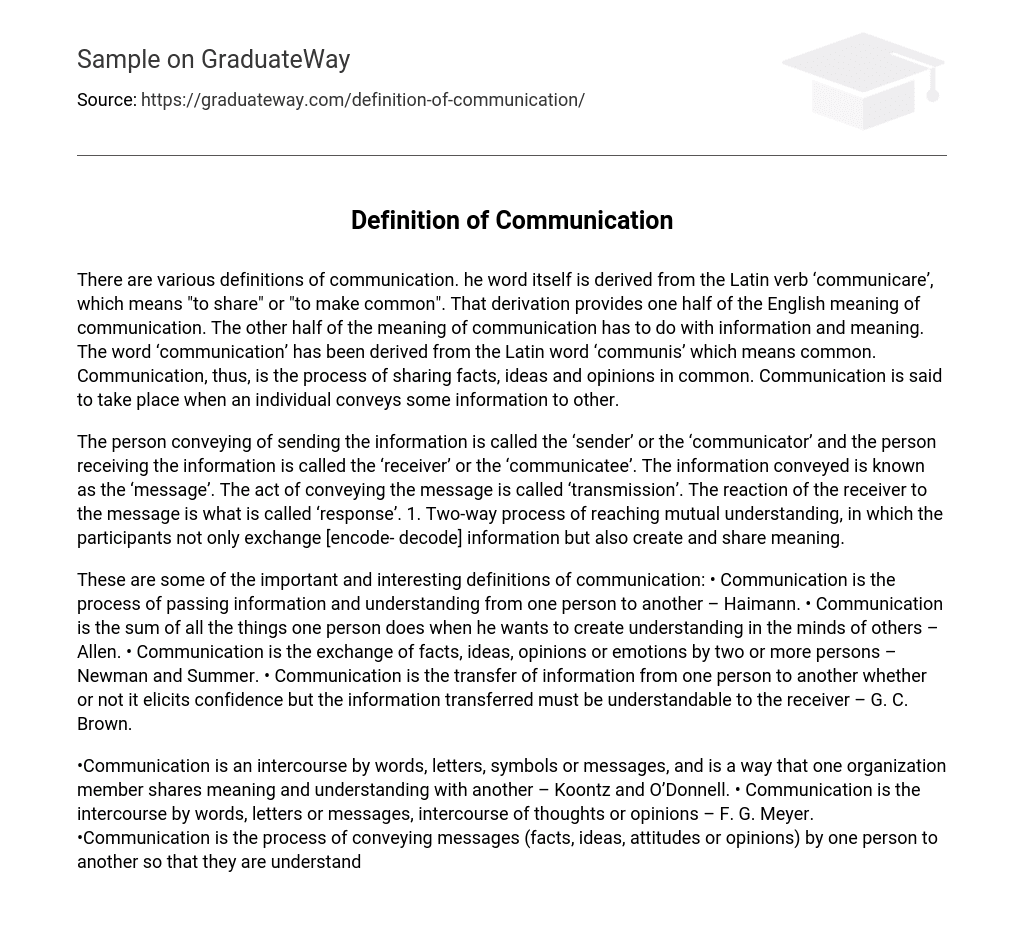Communication has multiple definitions. It comes from the Latin verb ‘communicare’, meaning “to share” or “to make common”. This definition encompasses one aspect of how we understand communication in English. Another aspect of communication relates to information and significance. The term ‘communication’ is derived from the Latin word ‘communis’, which means common. Hence, communication involves sharing facts, ideas, and opinions in a communal way. Communication happens when someone transmits information to others.
The person sending or conveying information is known as the ‘sender’ or the ‘communicator’. The person receiving the information is called the ‘receiver’ or the ‘communicatee’. The information being conveyed is referred to as the ‘message’. The act of conveying the message is termed as ‘transmission’. The receiver’s reaction to the message is known as ‘response’.
1. It is a two-way process of reaching mutual understanding, where participants exchange [encode-decode] information and also create and share meaning.
Here are several significant and fascinating definitions of communication:
-
Communication, according to Haimann, is the process of transmitting information and fostering understanding between individuals.
-
Allen defines communication as the culmination of a person’s efforts to establish comprehension in others’ minds.
-
Newman and Summer describe communication as the exchange of facts, ideas, opinions, or emotions among two or more individuals.
-
G. C. Brown states that communication involves transferring information from one person to another, regardless of whether it instills confidence. However, it is imperative for the receiver to comprehend the conveyed information.
• Communication is the act of exchanging words, letters, symbols, or messages between members of an organization, allowing for the sharing of meaning and understanding – Koontz and O’Donnell.
• Communication is the exchange of thoughts or opinions through words, letters, or messages – F. G. Meyer.
• Communication is the conveyance of messages (such as facts, ideas, attitudes, or opinions) from one person to another, with the goal of being understood.





